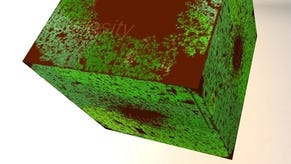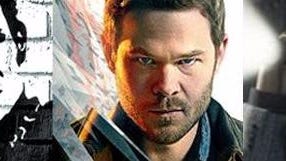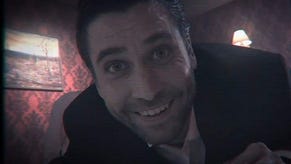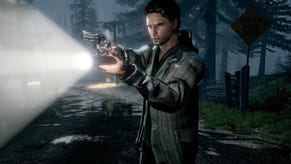Alan Wake: The Writer
Sleepy sendoff.
Editor's note: Reader beware! As a review of the second epilogue for a very narrative-led game, the following necessarily contains some spoilers for Alan Wake and previous episode The Signal. Proceed with caution.
When we last saw Alan Wake, victim of the world's worst case of writer's block, he was flailing his way through the all-consuming darkness of his own imagination in the game's first downloadable "Special Feature," The Signal. As we begin the second and final expansion, The Writer, Wake is still in that dark place, but he's not flailing anymore.
In fact, the hoodie-clad author seems to have popped a couple of quaaludes since the previous episode. In The Signal, and in much of the original game, Wake tended toward a snippy, bratty antihero, facing his plight with an air of unlikable petulance. The Writer is about Wake as Mr. Cool. He considers his circumstances with a careful methodology and then calmly pursues a course of action. The character's progression toward rationality makes sense in the context of the story, as Wake comes to grips with his own psyche. It is also quite boring.
He has gone from irritating to dull. Wake is also represented in the downloadable episodes by a jittery, deranged face on flickering televisions, and that's fitting. The developers' attempts to nail down their title character are reminiscent of adjusting the vertical hold on an old TV. Turn the knob too far, and the images on screen become obnoxiously kinetic, vibrating up and down the screen. Too far in the other direction, and the picture gets squeezed flat. In The Writer, Wake is spun too far the other way, flatter than a page from his prized manuscript.
Wake's dispassion is symptomatic of an episode that's mundane overall. The Signal was a mixed bag, but it did at least end on a high note of emotion and intrigue, which The Writer squanders.
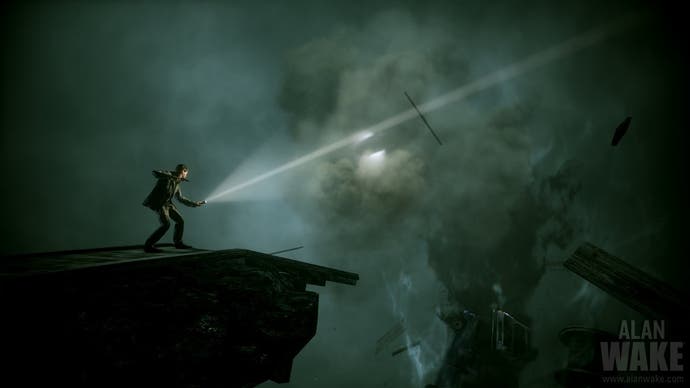
Wake was in the depths of his insanity when Episode 7 faded to black, and the cliffhanger practically demanded that players see the story through this denouement. But The Writer begins on a relatively placid note and carries itself with no urgency; it simply shoves Wake back on that familiar journey toward the yellow dot on the mini-map. (This time, that dot represents the Bright Falls lighthouse rather than a nondescript GPS signal.)
There is still the trademark torch-and-trigger-finger combat, although less of it than you might expect. The developers seem to realise that they explored the limits of their battle system in The Signal; it's a shame they didn't reach the same conclusion in regard to the whole "shine light on words to make things appear" device. That dynamic takes centre stage in The Writer, to the point that it feels like a way to artificially extend this brief episode.
The march toward the lighthouse is marked by a slow departure from Barry, Wake's literary agent and wisecracking sidekick. There were points in The Signal where Barry's patter became daring enough that it poked fun at the somewhat ludicrous assumptions underlying the game's Ouroboros of a plot. If that thread were pulled any further, Alan Wake might descend into full-on farce, and while that would be pretty goddamn fantastic, that's not the kind of game this is.
So Barry fades away, and Thomas Zane becomes Wake's new Samwise Gamgee. You may remember Zane as the fella in the old-time scuba suit who, oh yes, also happens to be made of pure light.

